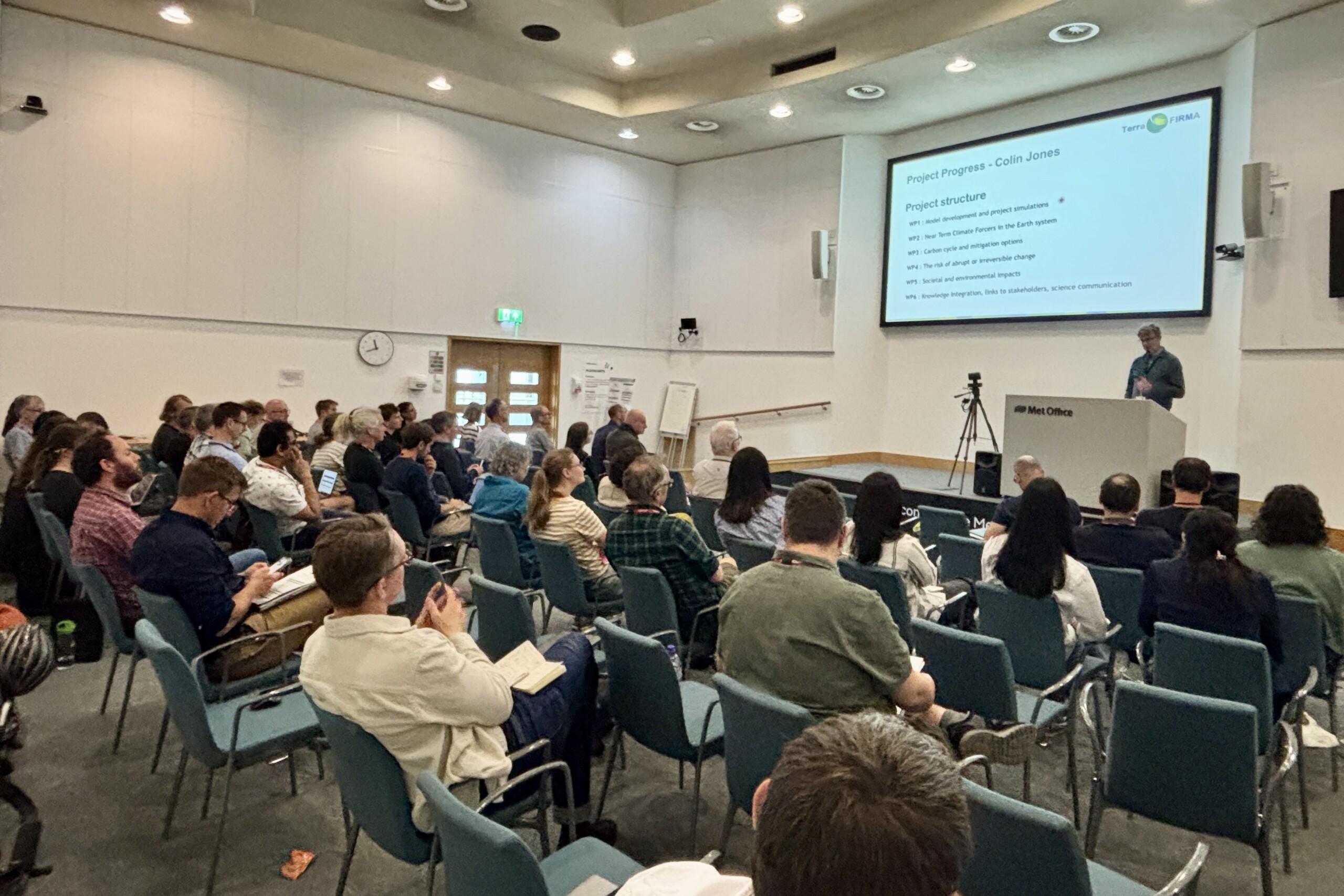What is TerraFIRMA?

Global climate change is the leading environmental challenge facing humanity today.
The world has warmed by around 1°C since the industrial revolution and is getting warmer at an increasing pace, with serious consequences for our planet’s climate, future food security, water resources, human health and biodiversity.
Decision-makers in government and the private sector are increasingly required to focus their attention on climate change mitigation options. TerraFIRMA aims to provide reliable scientific advice on mitigation options for limiting future change and on the risks and socio-economic impacts of future climate change .
The TerraFIRMA programme will examine a range of climate mitigation strategies, from afforestation and rewilding, to ocean alkalinity enhancement. We will also assess the impact of a rapid reduction in methane emissions and other pathways to net zero (i.e. not adding to the amount of greenhouse gases in the atmosphere).
TerraFIRMA’s work recognises that greenhouse gases come from a range of sources and that climate mitigation can be applied across sectors such as energy, transport, buildings, industry, waste management, agriculture, forestry, and other forms of land management.
The TerraFIRMA team will explore the implications of allowable carbon budgets and sustainable development goals, wider impacts on the environment, economy and society, and co-benefits of mitigation actions, such as for improved air quality.
A major focus in TerraFIRMA will be on investigating the risks and consequences associated with overshooting key global warming targets, including the risk of rapid change in a range of regional climate phenomena and the potential reversibility of any triggered changes.
TerraFIRMA involves eight Centres (National Centre for Atmospheric Science, British Antarctic Survey, British Geological Survey, Centre for Polar Observation and Modelling, National Centre for Earth Observation, National Oceanography Centre, Plymouth Marine Laboratory and UK Centre for Ecology and Hydrology) funded through UKRI-NERC National Capability.
The Met Office Hadley Centre (MOHC) is a key project partner. TerraFIRMA is also developing strong collaborations with a range of complementary activities at UK universities, NERC funded centres and international partners to realize the science goals of the project.
Related news

The State of Wildfires 2024–2025 report published

TerraFIRMA General Assembly, Met Office, May 2025
